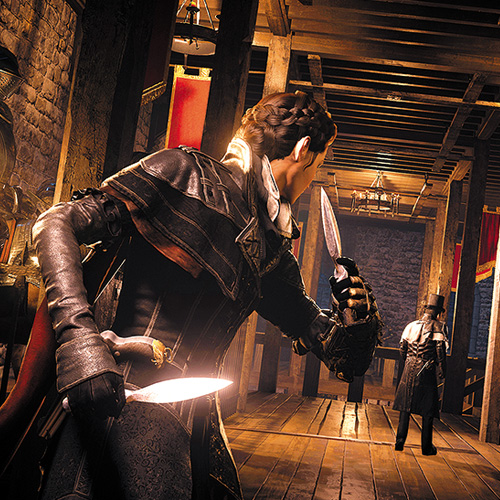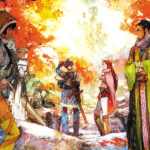PaigeFTW: Bad Story In The Big City

Instead of enjoying the gaming bounty of March, lush and full as it is with Zelda and Mass Effect, I have been trudging through Assassin’s Creed Syndicate.
This is because I only have a 500 GB hard drive on my PS4, and frankly, I have to delete stuff before I can start installing all the new stuff. (Yes, I know, I should get a bigger hard drive.) So I was trying to finish up a few loose ends.
I had actually finished most of Syndicate last year, but I apparently lost interest in the game after I finished liberating all the child laborers and defeating all the gangs. So I marched through the last few chapters of story last week.
As I loped around London, I remembered that I quite liked playing Syndicate. I also remembered that I thought the story was garbage. You spend a lot of time with Jacob and Evie, certainly, but they don’t spend nearly enough time with one another to convincingly develop a rift and then mend it at the game’s climax. The villains were muddled and one-dimensional. The game tells you that your actions have sown a lot of chaos, but you hardly ever see any of its effects.
At what point does a bad story bring down a game?
Gaming, as I’ve oft said in this space, is an interesting form of media because gameplay in many ways supersedes most everything else. If the game is fun to play, much can and is forgiven. Certainly the fact that I am still playing Syndicate (blasted Jack the Ripper DLC) attests to that. I am much more willing to ignore bad story than I am bad controls or battle systems.
The danger of it all is, however, a hollow experience: if a game cannot imbue tangible meaning into your actions, do those actions matter? And does this cheapen the experience as a whole? Where is the line between game as “game” and game as “art”?
It is a telling trend to pay attention to, and one that we will surely revisit once I finally get around to Andromeda in the coming weeks.











